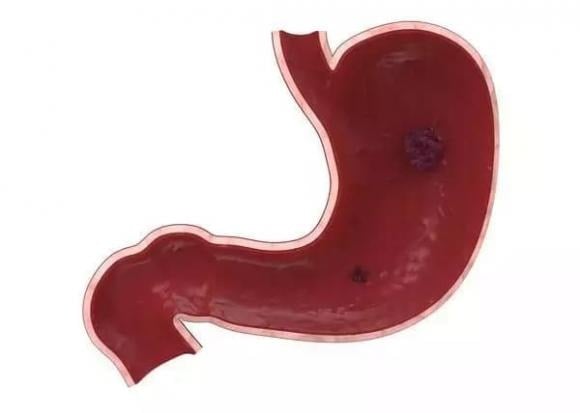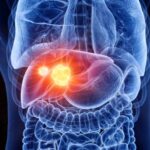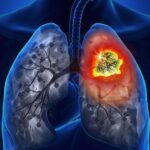Early detection of stomach cancer is crucial for treatment, especially with the increasing incidence rate. Stomach cancer is the second most common type of digestive cancer, after colorectal cancer.
Although it has a lower incidence rate than colorectal cancer, stomach cancer is harder to detect early due to its non-specific initial symptoms, which can be mistaken for chronic stomach conditions. This makes timely diagnosis challenging.
Like other cancers, stomach cancer has a better prognosis if caught early and treated appropriately. Therefore, recognizing warning signs is of utmost importance.
If you experience the following symptoms for an extended period, be cautious as they may indicate stomach cancer.
Stomach cancer often progresses insidiously, with symptoms that can be mistaken for common digestive issues. The following are two important warning signs of stomach cancer that you should pay attention to.
1. Intermittent Stomach Pain
Most chronic stomach conditions, such as gastric ulcers, exhibit cyclic pain patterns. For example, gastric ulcers typically cause pain about an hour after a meal, with the pain subsiding after the next meal.
However, the pain associated with stomach cancer is different. In the early stages, patients may experience a dull ache, cramping, or gnawing pain with no apparent pattern.
The pain may come and go, but as time progresses, the intensity of the pain will increase as the tumor grows. If you frequently experience abdominal pain of unknown origin, unrelated to meal timings, and it is becoming more severe, consult a doctor promptly for a stomach check-up.

2. Persistent Dyspepsia, Acid Reflux, and Nausea
In addition to stomach pain, people with early-stage stomach cancer often experience persistent dyspepsia. This is mainly due to impaired stomach function, reduced stomach capacity, gastrointestinal motility disorders, and subsequent difficulties in digestion.
Initially, patients may only experience acid reflux, gastroesophageal reflux, and mild bloating. However, as the cancer progresses, these symptoms can become more severe, including prolonged abdominal distension, persistent nausea, and vomiting, even with small meals. These are alarming signs indicating serious stomach dysfunction and a potential cancerous condition.

These symptoms can be mistaken for common digestive issues, leading to negligence in seeking early medical attention. If you experience these symptoms for an extended period without a clear cause, take the initiative to get a health check-up to detect stomach cancer early, increasing the chances of effective treatment.
3. Unexplained Weight Loss
The stomach plays a crucial role in the digestive system, breaking down food and absorbing nutrients. When affected by stomach cancer, digestive function is severely impaired, leading to poor appetite, inefficient nutrient absorption, and subsequent weight loss.
As the disease progresses, weight loss becomes more pronounced. This is because the growing tumor consumes a significant amount of the body’s nutrients. During the invasive and metastatic stages of cancer, the nutritional demands of cancer cells further increase, leading to the patient’s progressive emaciation. If you experience rapid weight loss without changes in your diet or exercise routine, be vigilant and seek medical advice promptly for a health check.
4. Gastrointestinal Bleeding
A serious symptom of stomach cancer is gastrointestinal bleeding. Clinical studies show that most patients with intermediate to advanced stomach cancer experience gastric bleeding to varying degrees. The primary causes of this condition include:
Cancerous tissue erosion and necrosis, leading to gastric mucosal damage.
Tumor invasion into surrounding blood vessels, causing vessel rupture and bleeding.
The signs of gastrointestinal bleeding can vary depending on the amount of blood loss:
If the blood loss is minimal, patients may notice occult blood in their stools or black, tarry stools.
In cases of significant bleeding, individuals may vomit blood, experience dizziness, or even face life-threatening consequences if not promptly treated.
Is It True That Giving Up Rice and Noodles Can Lead to Rapid Weight Loss?
“There’s a buzz online about a revolutionary weight loss method that’s capturing everyone’s attention. This approach focuses on curbing your intake of main meals, with some even forgoing rice and noodles – essentially, any food containing carbohydrates. This method promises to help individuals shed those extra pounds and achieve their dream physiques.”






































